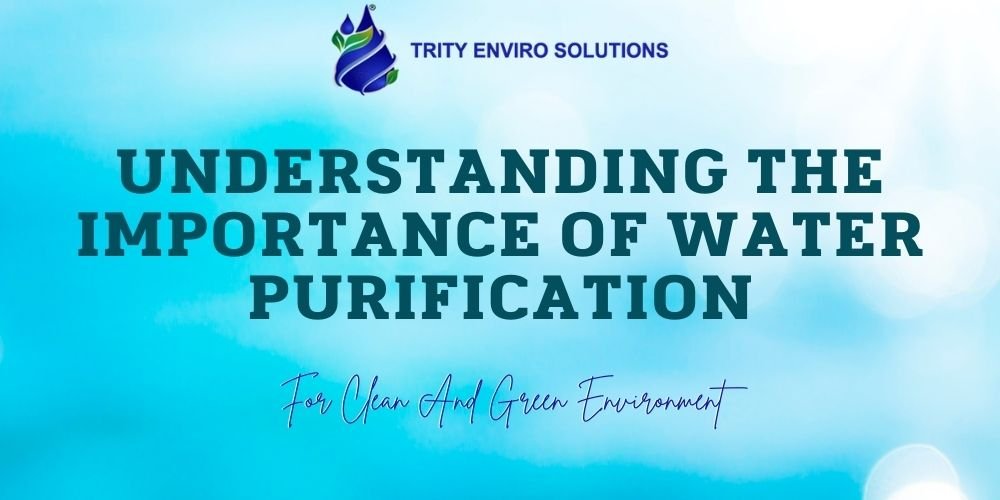
Introduction
For life to exist on Earth, water is necessary. It keeps us alive, hydrates us, and is necessary for ecosystems, business, and agriculture. Life as we know it would not be possible without it. Our well-being and the health of our world depend on the wise use and conservation of this priceless resource. Water purification is crucial to life and affects many different aspects:
- Survival: Water is necessary for the existence of humans, animals, and plants. It serves as the building block for all living things.
- Hydration: Water supports body activities by assisting with temperature regulation, nutrient transport, and waste removal.
- Health: For overall health, including skin health, digestion, and circulation, drinking adequate water is essential.
- Agriculture: The irrigation of crops, which is necessary for the production of food, depends on water.
- Industry: Water is used in many industries for cooling, energy production, and manufacturing operations.
- Environmental Systems: Diverse ecosystems are supported by bodies of water, and aquatic life requires clean water to survive.
- Transportation: It is essential for trade and travel since water provides a natural route for transportation.
- Sustainable Development: The Sustainable Development Goals of the United Nations emphasize the importance of water in eradicating poverty, promoting gender equality, and preserving the environment.
Ways to purify wastewater
To safeguard a safe water supply and the environment, wastewater must be purified. In order to treat and purify wastewater, a variety of techniques and technologies are used, depending on the specific contaminants and the desired water quality. Here are a few typical techniques for cleaning wastewater:
- Primary treatment- The primary stage of wastewater treatment, known as primary treatment, involves physical procedures to remove big particles and debris. Typically, screening is used to get rid of big objects and sedimentation is used to get rid of suspended materials.
- Secondary Treatment- Secondary treatment is frequently used to further remove organic waste and contaminants after first treatment. Trickling filters, batch reactor sequencing, and activated sludge processes are examples of typical techniques. Organic compounds are broken down by microorganisms.
- Tertiary treatment- In order to achieve greater standards for water quality, tertiary treatment, an advanced step of wastewater treatment, concentrates on removing certain contaminants. Advanced oxidation processes, chemical coagulation and flocculation, and filtration (sand, membrane, or multi-media) are some of the techniques.
- Disinfection- Disinfection techniques including chlorination, ultraviolet (UV) irradiation, and ozonation are used to destroy or render harmless microorganisms like bacteria and viruses inactive.
- Chemical Precipitation- In order to precipitate out pollutants, wastewater is treated with chemicals. For instance, adding chemicals like alum or ferric chloride can aid in the removal of heavy metals and phosphorus.
Importance of clean water
Water purification is crucial because it has a direct impact on both public health and the health of the environment. In order to protect communities from waterborne illnesses and to ensure the general welfare of populations, clean and safe water is necessary for drinking, cooking, and personal hygiene. Additionally, by removing toxins that could affect fish, plants, and other aquatic life, water purification safeguards aquatic ecosystems. Additionally, it promotes Importance of clean water along with sustainable industrial practices, economic growth, and agricultural practices, underscoring its critical role in numerous industries. Effective water purification methods are essential for assuring a consistent and sustainable supply of this priceless resource, which will eventually contribute to the health, prosperity, and resilience of civilizations around the world. This is because water resources are becoming more and more stressed. Water filtration is crucial for a number of important reasons-
- Access to Clean and Safe drinking water: Providing access to clean and safe drinking water is one of the most important parts of water purification. Processes of purification eliminate water contaminations like germs, and pollutants, protecting the general public's health and lowering the likelihood of waterborne illnesses.
- Disease prevention: In places with insufficient water treatment or poor water quality, waterborne illnesses including cholera, typhoid, and dysentery pose serious health risks. Effective water treatment lessens the strain on healthcare systems and aids in the prevention of certain diseases.
- Environmental Protection- Protecting ecosystems and preventing pollution are two benefits of Water treatment before releasing it into open bodies of water or the environment. It lessens how hazardous toxins are to aquatic life and the environment as a whole.
- Agriculture and Irrigation- Purified water is necessary for agricultural processes, including irrigation. Contaminant-free water can be achieved through various Filtration methods that improves food production and food safety by ensuring the health of crops and lowering the possibility of soil contamination.
- Industrial processes: A lot of enterprises use purified water in their cooling systems, production procedures, and product formulation. Maintaining product quality and equipment longevity require high-quality water.
- Economic Development: By lowering the financial burden of Waterborne diseases, boosting agricultural output, and luring investments in sectors that need purified water, access to clean water can promote economic development.


